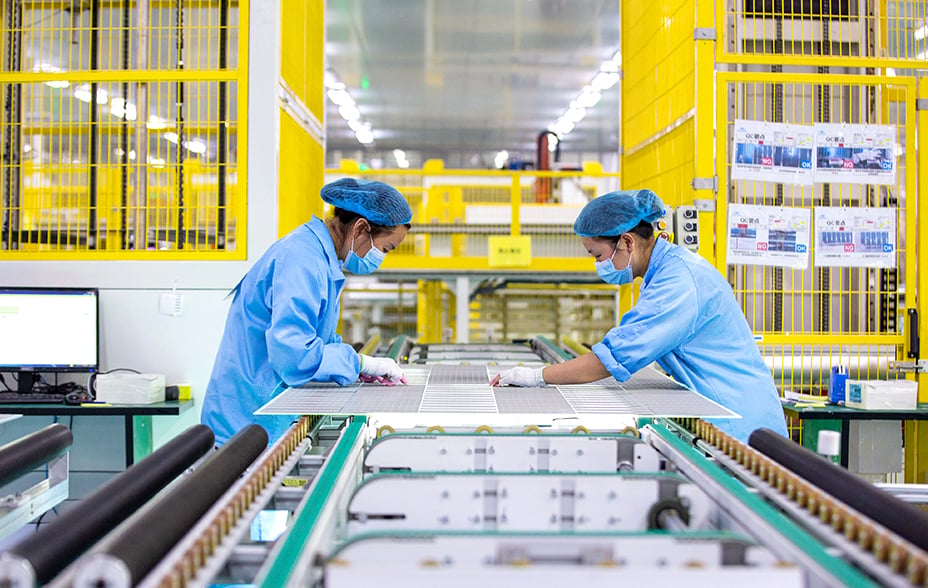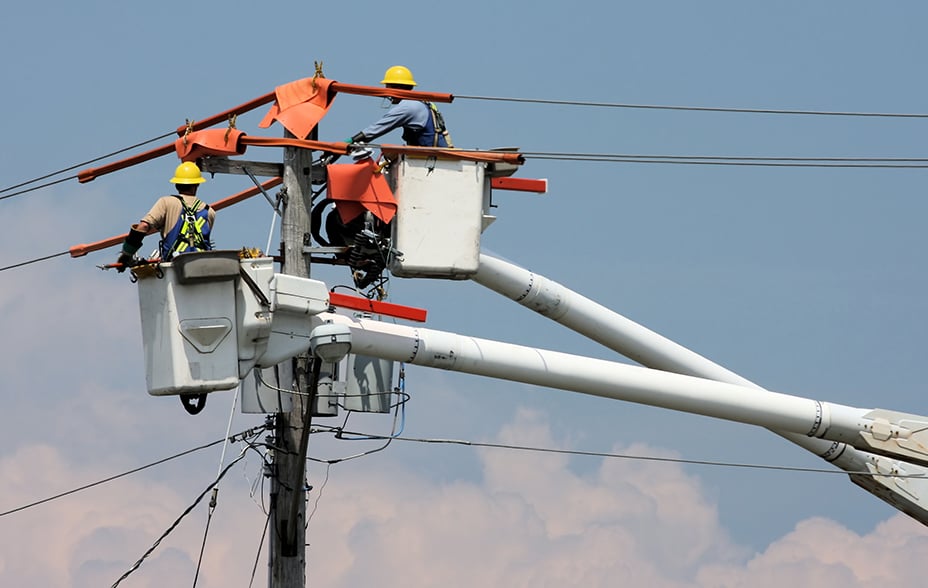
Please remember that the value of the investment can fall and you may not get back the amount invested. Past performance is not a guide to future returns.
This is China’s Year of the Tiger. The zodiac sign symbolises resilience and strength. These are qualities we want the Chinese companies in our portfolio to emulate.
There’s no avoiding that 2021 marked one of the country’s biggest regulatory resets in over a decade. And the Omicron outbreaks in Hong Kong and mainland China have posed local companies further challenges.
But looking ahead, we believe select Chinese firms still have strong growth potential. And they may even be better positioned to benefit from future opportunities thanks to the authorities’ interventions.
Our investment philosophy focuses on finding the highest growth companies in China and holding them for five years or longer. Recent market volatility does nothing to change this approach.
At times like these, we believe it is important to stick to our process, keep our focus on companies’ operational performance and avoid the temptation to adjust our investment time horizon to sentiment or news flow.
Sometimes it’s when everything seems gloomiest that there’s the greatest cause for optimism.
Regulation and prosperity
After China’s regulators announced their new business restrictions, the first question we asked ourselves was how will these developments change the economic and societal environment in which our portfolio companies operate over the long term?

While the impact will vary for different industries and firms, at the macro level we think there are two areas that require continued monitoring:
1. Anti-monopoly/data regulation
Regulating large technology conglomerates and their use of data is a global issue. China is no different to elsewhere, and other countries may ultimately follow its lead.
China’s regulatory environment for its larger tech companies was remarkably relaxed prior to 2021, and to some extent, the authorities needed to act given the speed and dynamism of their digital innovation.
However, we’re mindful that while the authorities have set the broad parameters of anti-monopoly and data security regulation, they have still to announce detailed guidelines.
Understandably, the state wants to incentivise talent and investment toward ‘hard technologies’ that will be crucial to its next decade of economic development. This is a reason for excitement and investment in companies likely to benefit from this support, in areas such as industrial automation and new infrastructure.
2. Common prosperity
China’s economic miracle has pulled hundreds of millions out of poverty. But it has also created vast inequalities.
The Gini coefficient is a statistical tool that gauges the distribution of income across a population. China and the US score similiarly, putting both among major global economies with high levels of wealth inequality.
Inequality can lead to instability, and China is keen to avoid related problems that other nations have experienced. However, the word ‘common’ does not mean a return to a markedly less palatable form of communism, in our view.
President Xi has explicitly ruled out the creation of a welfare state. His goal is an olive-shaped distribution of wealth, with a large middle class and smaller groups of very rich and very poor people. That would eventually require more goods and services.
To achieve this, innovation, economic growth, employment and social stability are key.
If the government succeeds, it will create a larger middle class in a more sustainable, consumption-led economy. That would bring companies significant growth opportunities.
Valuable data
These factors affect our two largest holdings, Alibaba and Tencent.
Their activities are wide-ranging, which means multiple regulatory agencies oversee them.
Until we get clearer guidance from those regulators on what the two firms can and cannot do, we don’t intend to make large changes to the size of either holding.
One thing that makes these firms so attractive is their vast stores of consumer and financial data. Last year, the government made data its fifth ‘factor of production’ – meaning ministers recognise it as being a key economic resource alongside land, labour, capital and technology.
So a critical and unanswered question is whether Alibaba and Tencent will be allowed to monetise their data and to what extent.
There have been a couple of positive signs at the margin.
The authorities picked Alibaba Cloud to host the core systems of Beijing’s Winter Olympic Games.
And the Cyberspace Administration of China, which has driven many of the reforms, included Alibaba and other private companies on a list of cloud services that had passed its safety assessment.
Climate change challengers
Beyond the internet space, we continue to be excited by several themes underpinning China’s next decade of growth.
These include:
- advanced materials and manufacturing
- environmental technology
- industrial upgrading
China poses a conundrum when it comes to climate change. We hear much about China’s carbon emissions, coal dependency, energy needs and construction activity. But absolute numbers and broad generalisations can blind us to the speed of change.
China has an opportunity to take a leading position in solving one of the biggest 21st-century challenges. And a growing number of Chinese companies are becoming global champions in relevant industries.

Take environmental technology, for example. China produces 80 per cent of the world’s refined polysilicon and also dominates the manufacture of solar cells, in which the material is used, to a similar degree according to a recent report drawing on 2019 data.
This puts its leading solar power players on a solid footing for the fast-growing global demand for green energy.
Chinese firms also lead the electric vehicle battery industry, another technology central to the green revolution.
Little giants
With a push on research and development spending in areas such as semiconductors, robotics and advance materials, China wants to nurture an array of ‘little giants’ that have the potential to develop highly advanced expertise in these strategic sectors.
We believe they present sizeable growth opportunities to long-term investors.
Our portfolio reflects this with holdings in:
- SG Micro – a computer chip manufacturer. Smartphones, computers and cars, among other products, make use of its components
- Shenzhen Inovance – a maker of industrial robots and parts for automated machinery used in manufacturing, petrochemical production and other sectors
- Sinocera – an advanced materials company whose bioceramics and other products sell to the telecommunications, medical and space industries, among others
These are just some of the firms that we believe are poised to play critical roles in China’s long-term growth.
We are invested in others and continue to hunt out further potential outliers.
So far from being subdued, we believe our portfolio companies continue to offer dynamic and powerful growth opportunities to investors with a long-term focus, as the Year of the Tiger gets into its stride.
Risks and Important Information
Investment markets can go down as well as up and market conditions can change rapidly. The value of an investment in the fund, and any income from it, can fall as well as rise and investors may not get back the amount invested. The China Fund’s exposure to a single market and currency may increase share price movements. The fund’s share price can be volatile due to movements in the prices of the underlying holdings and the basis on which the fund is priced.
The views expressed in this article should not be considered as advice or a recommendation to buy, sell or hold a particular investment. The article contains information and opinion on investments that does not constitute independent investment research, and is therefore not subject to the protections afforded to independent research.
Some of the views expressed are not necessarily those of Baillie Gifford.
Investment markets and conditions can change rapidly, therefore the views expressed should not be taken as statements of fact nor should reliance be placed on them when making investment decisions.
Baillie Gifford & Co Limited is wholly owned by Baillie Gifford & Co. Both companies are authorised and regulated by the Financial Conduct Authority and are based at: Calton Square, 1 Greenside Row, Edinburgh EH1 3AN.
Baillie Gifford & Co Limited is the OEICs’ Authorised Corporate Director.
FP 22179 10011592





